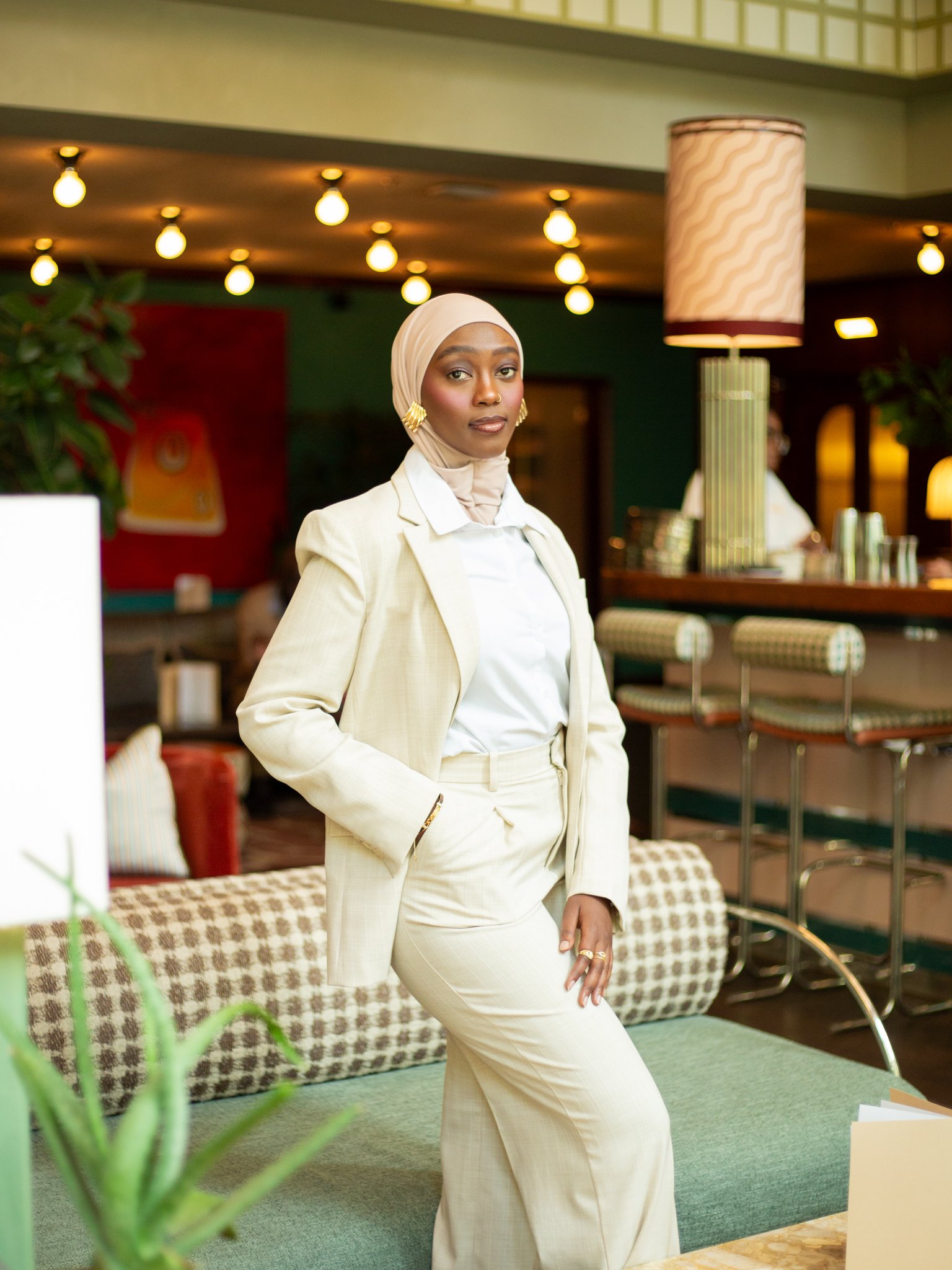
Zurah Nsabimana Co-Founder
“I chased dreams, made mistakes, learned the hard way. Now, I know what I value. And I’m learning that doing it all alone doesn’t make you stronger.”
The Co-Founder’s Story: Zurah and the Energy of The Social Vilâge
Words by The Social Vilâge Editorial Team
There are those who lead from the front, and those who quietly anchor the room. Zurah is both. Grounded but fearless, radiant but real. Her journey to co-founding The Social Vilâge is not one of overnight fame or rigid plans, but of deep roots, personal evolution, and an unwavering desire to make others feel like they belong.
““When I was 16,” she reflects, “I imagined that by 28, I’d be living comfortably with a loving partner and a calm, peaceful life. No kids yet — just a deep desire to experience life, achieve certain dreams, and explore the world before ever settling down.”
That gentle ambition still defines her. Even as a teenager, Zurah was curious, intentional, and the kind of girl who stepped up and took initiative — not to prove anything, but because she genuinely cared.
“I still live that way,” she says. “Only now, I do it with more intention.” Zurah moved to the Netherlands at age 11, after spending her early years in Uganda and Rwanda.
“Courage isn’t about being fearless. It’s about saying, ‘I’m scared, but I’m doing it anyway.’”
“Back then, families raised children together. If one child cried, five adults showed up. It was a village in every sense of the word.”
And at the center of that village? Her mother.
“I grew up in a family of five — two girls, two boys — and a powerhouse of a mother. She raised four kids alone in a foreign country. Worked full-time. Never let us forget who we are. There was always food on the table, clothes to wear, and a warm bath waiting. She made sure of that.”
Islam was more than a practice in their home. “Our religion was our compass,” Zurah explains. “My mother always said prayer connects you to
“I didn’t need to feel ready. I just needed to trust the nudge.”
“I didn’t need to feel ready. I just needed to trust the nudge.”
something bigger than yourself. That it keeps you disciplined — not just religiously, but in life.”
But even with that foundation, Zurah was never one-dimensional. “I’ve always been made up of different sides — soft and strong, grounded and wild, obedient and free. That tension made me.”
She rebelled. She questioned. She danced between tradition and independence. And through all of it, her mother remained her guide. “She is my role model. Everything I build today stands on the foundation she laid.” From 22 to 25, Zurah lived deeply. “I chased dreams, made mistakes, learned the hard way. Now, I know what I value. And I’m learning that doing it all alone
Her story is filled with quiet bravery. Like the moment she chose to become self-employed. “It wasn’t some big confident leap. It was terrifying. But I had a friend who told me to try part-time freelancing. Then Bitisho said the same. And it just… clicked. I realized I didn’t need to feel ready. I just needed to trust the nudge.”
That trust became her pattern. Like the day she got on a wild carnival ride at 14. “I was shaking, scared. But I still got on. After that, I kept saying yes — to travel, to skydiving, to starting something new. Courage isn’t about being fearless. It’s about saying, ‘I’m scared, but I’m doing it anyway.’”
And no, she never saw herself as a founder. “I thought I was just the support system. The one who holds it down behind the scenes. But The Social Vilâge taught me that you don’t need to be ‘the visionary’ to help build the vision. You just have to care deeply. That’s what I bring. And that’s more than enough.”
Her relationship with Bitisho is its own kind of origin story. “We met during Eid, at a cultural event for East Africans in the Netherlands. And now? We’re building something that reflects both of us.”
“Bitisho is more than a friend — she’s my sister. My travel buddy. My safe space. We even signed an agreement. Because I don’t play about her. There’s no amount of money that should ever come between us.”
Their energy is beautifully balanced. “She dreams boldly. I translate it into structure. That’s our magic. Our friendship is rooted in honesty, openness, and respect. Even when we disagree, we move with love.”
So when the idea of The Social Vilâge came to life? “I didn’t hesitate. I was already in. Sign me up.”
What does The Social Vilâge mean to her?
“It’s how I love to live,” she says. “Intentional spaces. Thoughtful details. Warmth. Connection. I was raised to welcome people not just into your home, but into your energy. With food, with heart, with presence. That’s what I bring into this work.”
So what has she learned through building it?
“That I’m capable of more than I thought. That I don’t have to wait for perfection to begin. And that collaboration doesn’t mean losing yourself — it means making space for each other’s strengths.”
“She’d be proud. That I found a friend who sees me, who hypes me, who believes in me. She’d say, ‘You’re doing it.’ And I’d say: ‘Invest in your people. The ones who bring you closer to yourself, to Allah, and to joy. They’re the real ones. Hold them close. Always.’”
2025 by The Social Vilâge

